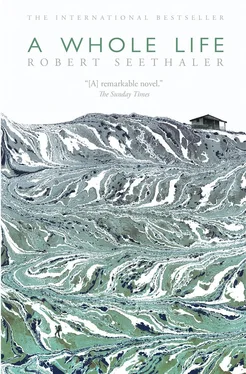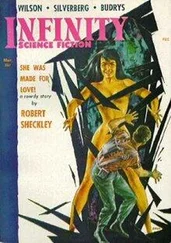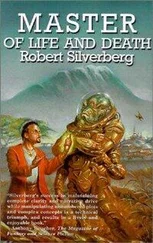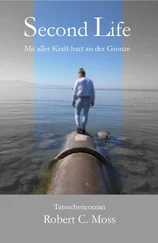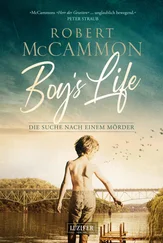Robert Seethaler - A Whole Life
Здесь есть возможность читать онлайн «Robert Seethaler - A Whole Life» весь текст электронной книги совершенно бесплатно (целиком полную версию без сокращений). В некоторых случаях можно слушать аудио, скачать через торрент в формате fb2 и присутствует краткое содержание. Год выпуска: 2015, Издательство: House of Anansi Press Inc, Жанр: Современная проза, на английском языке. Описание произведения, (предисловие) а так же отзывы посетителей доступны на портале библиотеки ЛибКат.
- Название:A Whole Life
- Автор:
- Издательство:House of Anansi Press Inc
- Жанр:
- Год:2015
- ISBN:нет данных
- Рейтинг книги:4 / 5. Голосов: 1
-
Избранное:Добавить в избранное
- Отзывы:
-
Ваша оценка:
- 80
- 1
- 2
- 3
- 4
- 5
A Whole Life: краткое содержание, описание и аннотация
Предлагаем к чтению аннотацию, описание, краткое содержание или предисловие (зависит от того, что написал сам автор книги «A Whole Life»). Если вы не нашли необходимую информацию о книге — напишите в комментариях, мы постараемся отыскать её.
Set in the mid-twentieth century and told with beauty and tenderness, his story is one of man's relationship with an ancient landscape, of the value of solitude, the arrival of the modern world, and above all, of the moments, great and small, that make us who we are.
A Whole Life — читать онлайн бесплатно полную книгу (весь текст) целиком
Ниже представлен текст книги, разбитый по страницам. Система сохранения места последней прочитанной страницы, позволяет с удобством читать онлайн бесплатно книгу «A Whole Life», без необходимости каждый раз заново искать на чём Вы остановились. Поставьте закладку, и сможете в любой момент перейти на страницу, на которой закончили чтение.
Интервал:
Закладка:
After the deaths of the two youngest Kranzstocker children, who were carried off one long winter’s night by diphtheria, the work on the farm became even harder as there were fewer arms to share the burden. On the other hand, Egger had more space in the bed now, and no longer had to scrap over every crust with his remaining stepbrothers and stepsisters. He and the other children hardly came to blows any more, in any case, simply because Egger had grown too strong. It was as if Nature had been trying to make it up to him ever since the business with his shattered leg. At the age of thirteen he had the muscles of a young man, and at fourteen he heaved a sixty-kilo sack through the hatch to the granary for the first time. He was strong, but slow. He thought slowly, spoke slowly and walked slowly; yet every thought, every word and every step left a mark precisely where, in his opinion, such marks were supposed to be.
One day after Egger’s eighteenth birthday (since no precise information could be obtained about his birth, the mayor had simply assigned a random summer date, namely the fifteenth of August 1898, as his birthday, and issued the certificate accordingly), an earthenware bowl of milk soup happened to slip out of his hands during supper, and broke with a dull crack. The soup, with the bread he had just crumbled into it, spread over the wooden floor, and Kranzstocker, who had already folded his hands to say grace, slowly rose to his feet. ‘Fetch the hazel and put it in water,’ he said. ‘I’ll see you in half an hour.’
Egger fetched the rod from its hook, put it outside in the cattle trough, sat down on the yoke of the plough and dangled his legs. Half an hour later the farmer appeared. ‘Bring the rod!’ he said.
Egger jumped off the yoke and took the rod out of the trough. Kranzstocker brought it hissing down through the air. It flexed smoothly in his hand, trailing a curtain of delicately glittering water drops in its wake.
‘Drop your trousers!’ the farmer ordered. Egger folded his arms in front of his chest and shook his head.
‘Well, look at you! The bastard wants to contradict the farmer,’ said Kranzstocker.
‘I want to be left alone, that’s all,’ said Egger.
The farmer thrust out his chin. There was dried milk stuck in the stubble of his beard. A long, curved vein throbbed in his neck. He stepped forward and raised his arm.
‘If you hit me, I’ll kill you!’ said Egger, and the farmer froze.
In later life, when Egger looked back on this moment, it seemed to him that they stood like that the whole evening, confronting each other, he with his arms folded across his chest, the farmer with the hazel rod in his raised fist, both silent, with cold hatred in their eyes. In reality it was at most a few seconds. A drop of water ran slowly down the rod, trembled free and fell to earth. The cows’ muffled chomping emanated from the barn. One of the children laughed inside the house, then the farm was quiet again.
Kranzstocker dropped his arm. ‘Get out of here,’ he said, in a toneless voice, and Egger went.
* * *
Andreas Egger was considered a cripple, but he was strong. He was a good worker, didn’t ask for much, barely spoke, and tolerated the heat of the sun in the fields as well as the biting cold in the forest. He took on any kind of work and did it reliably and without grumbling. He was as good with a scythe as he was with a pitchfork. He turned the freshly mown grass, loaded dung onto carts, and lugged rocks and sheaves of straw from the fields. He crawled over the soil like a beetle and climbed between rocks to retrieve lost cattle. He knew in which direction to chop different kinds of wood, how to set the wedge, hone the saw and sharpen the axe. He seldom went to the inn, and he never allowed himself more than a meal and a glass of beer or a Krauterer. He scarcely spent a single night in a bed; usually he slept on hay, in attics, in small side rooms, and in barns, alongside the cattle. Sometimes, on mild summer nights, he would spread a blanket somewhere on a freshly mown meadow, lie on his back and look up at the starry sky. Then he would think about his future, which extended infinitely before him, precisely because he expected nothing of it. And sometimes, if he lay there long enough, he had the impression that beneath his back the earth was softly rising and falling, and in moments like these he knew that the mountains breathed.
By the time he was twenty-nine Egger had saved enough money to purchase the lease on a small plot of land with a hay barn. The patch of ground lay just below the tree line, about five hundred metres above the village, and could only be reached via the steep, narrow path to the Almerspitze. It was virtually worthless, steep and barren, littered with countless stones and scarcely bigger than the chicken field behind the Kranzstocker farm. But a little spring of clear, ice-cold water bubbled out of the rock nearby, and in the morning the sun stood on the ridge of the mountain half an hour earlier than in the village, warming the earth under Egger’s night-damp feet. He felled a couple of trees in the surrounding forest, worked them on the spot and dragged the beams to his hay barn to prop up the crooked walls. For the foundation he dug a hole and filled it with the stones from his plot, which rather than decreasing in number seemed to grow back night after night out of the dry and dusty ground. He gathered the stones, and because he got bored doing it he gave them names. And when he ran out of names, he gave them words. And when at some point it became clear to him that there were more stones on his plot of land than he knew words, he just started again from the beginning. He needed no plough and no cattle. His plot was too small for a farm of his own, but it was big enough for a tiny vegetable garden. Right at the end he erected a low fence around his new home and put in a little gate, with the express intention of being able to hold it open one day for some potential visitor who might come calling.
All in all, it was a good time. Egger was content, and as far as he was concerned things could have gone on like that for ever. But then came the incident with Horned Hannes. According to his understanding of responsibility and justice, the goatherd’s disappearance was not his fault; nonetheless, Egger told no one about what had happened in the thick of the blizzard. Horned Hannes was believed to be dead, and although his body was never found, not even Egger doubted it for a moment. Yet he could not forget the image of that spindly figure slowly dissolving into fog before his eyes.
There was something else that, since that day, Egger carried inextinguishably within him: a pain that, after the brief touch of a fold of fabric, had sunk into the flesh of his upper arm, his shoulder, his breast, finally settling somewhere in the region of his heart. It was a very subtle pain, yet it was more profound than any Egger had encountered in his life so far, including Kranzstocker’s blows with the hazel rod.
Her name was Marie, and Egger thought it the most beautiful name in the world. She had appeared in the valley a few months earlier, looking for work, with trodden-down shoes and dusty hair. It was good timing, as the innkeeper had told his maid to go to the devil just a few days before, for unexpectedly falling pregnant. ‘Show me your hands!’ he said to Marie. He inspected the calluses on her fingers with a satisfied nod and offered her the vacant position. From then on she served the guests and made the beds in the handful of rooms furnished for seasonal workers. She assumed responsibility for the chickens, helped out in the garden and in the kitchen, slaughtered animals and emptied the guests’ toilet. She never complained, and she wasn’t vain or squeamish. ‘You keep your hands off her!’ said the innkeeper, stabbing Egger’s chest with a forefinger that gleamed with freshly rendered lard. ‘Marie’s a girl for work, not love, understood?’
Читать дальшеИнтервал:
Закладка:
Похожие книги на «A Whole Life»
Представляем Вашему вниманию похожие книги на «A Whole Life» списком для выбора. Мы отобрали схожую по названию и смыслу литературу в надежде предоставить читателям больше вариантов отыскать новые, интересные, ещё непрочитанные произведения.
Обсуждение, отзывы о книге «A Whole Life» и просто собственные мнения читателей. Оставьте ваши комментарии, напишите, что Вы думаете о произведении, его смысле или главных героях. Укажите что конкретно понравилось, а что нет, и почему Вы так считаете.
